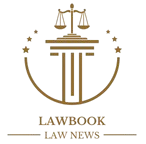Saint John legal clinic pairs newcomers with law students
Newcomers who live in Saint John now have a legal clinic to turn to when dealing with issues not covered by New Brunswick Legal Aid.
The Saint John Newcomers Center launched Legal Support and Advice for Racialized Newcomers last fall, in partnership with the University of New Brunswick.
Doaa Higazy, the project lead at the Saint John Newcomers Centre, said she saw the need for help, so her team applied for funding right away when they learned it had become available through the federal Department of Justice.
“For newcomers, accessing the Canadian law system is very hard,” said Higazy. “Most of them have a lack of awareness of their rights.”

They often face language barriers, have cultural sensitivities and can carry trauma or a mistrust of the legal system from their previous home, he said.
The legal clinic is meant to assist with issues relating to tenancy, immigration, employment and notary services, as well as helping people learn their rights under New Brunswick and Canadian laws.
Higazy said they have helped 60 people since the clinic opened, and there’s been a flood of new cases coming in.
The program is a good opportunity for everyone involved, he said, for newcomers to access the legal system and for law firms to foster community engagement and gain more cultural competence.
And “for the students to have the opportunity to gain practical experience in a diverse and inclusive environment. It’s a great opportunity for them to prepare them as future lawyers,” said Higazy.
UNB’s Legal Clinic, also launched last fall, has 3rd year law students meet with and assist clients of the program, while under the supervision of lawyer Jeannette Savoie.

The UNB clinic is based in Fredericton and is open to low-income New Brunswickers who don’t qualify for Legal Aid. Once a month they connect with the Saint John Newcomers Center to hold clinics for clients who have been assessed as a good fit for the racialized newcomer program.
The law students get a hands-on experience while helping new New Brunswickers, which over its first months has already proven to be valuable to students, according to Savoie.
“For example, when we work with newcomers, we often have to work through interpreters and for lawyers and law students, it’s a learning process,” said Savoie to Information Morning Fredericton.
“The law can use complicated language which people don’t always understand, so we have to break it down.… And the students have expressed to me that, you know, they found that it is a very good exercise in awareness.”
How it works
The law students started with cultural competency training from the Saint John Newcomers Centre.
Newcomers who wish to meet with law students contact the center, have their files assessed, and the file information is forwarded to the UNB Legal Clinic.
Once the files are accepted, meetings are arranged between a newcomer client and their assigned law student, under Savoie’s supervision.
If a newcomer’s case is too complex, or not an area with which the UNB Legal Clinic can assist, the law student writes a detailed report that is forwarded to an outside lawyer in the community.
“We currently have a very good number of law students involved in that project, and we are working on a plan to engage even more in the future,” said Higazi.
“So we are doing our best to serve the newcomers in a great way.”
